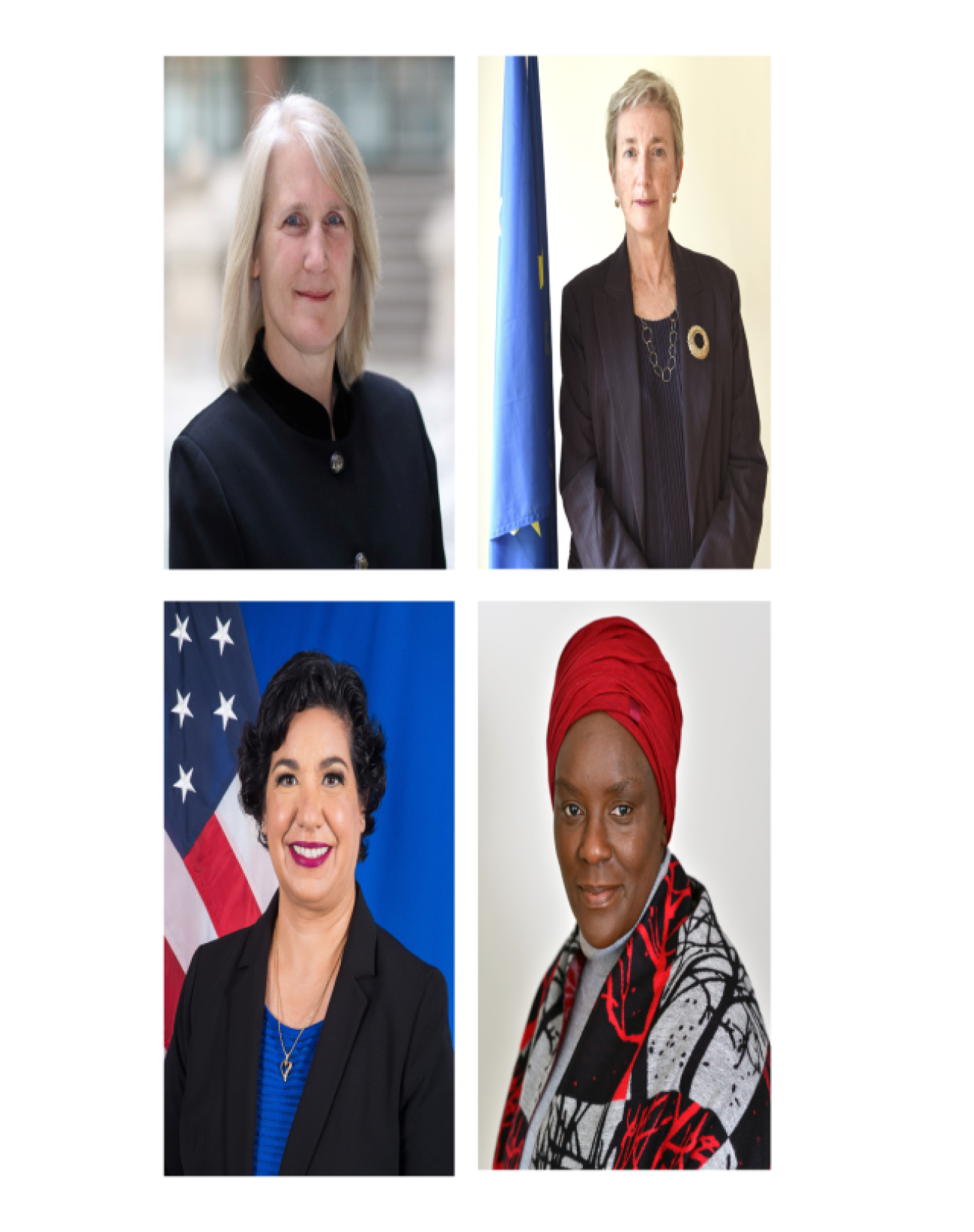Women At Centre of Sustainable Development

An OpEd by the British High Commissioner, the EU Ambassador, the US Ambassador, and the UN Resident Coordinator in Lesotho.
International Women’s Day is a timely reminder of the efforts and toils of thousands of women in years gone by who fought for women’s rights and gender justice. Today we are in leadership positions as women from different countries and it is important to take time to acknowledge the space that their efforts established for us to step into. While we use the day to celebrate these contributions, it is important that we also take time to speak up on issues that still keep women out of public office, keep women out of employment and make it difficult for women to fulfill their potential to thrive economically and as people with dignity.
Globally, people will hopefully take time to pause and reflect on what this day means for them as individuals and as part of a collective of nations. Particularly at this time when the world is walking a tightrope caused by the COVID 19 pandemic, climate change and conflict. In many countries, already existing fault lines have been exposed and semi-healed wounds torn open. Millions of women across the world, including in Lesotho, have lost jobs, missed opportunities for learning and fallen deeper into poverty. Of great concern is that Lesotho has continued to experience high levels of gender-based violence which has left some women dead and others battling for a meaningful existence. Negative coping mechanisms have resulted in increased cases of forced child marriage and unwanted teenage pregnancies.
Food insecurity has also impacted women and children. Over one third of children in Lesotho are stunted, affecting cognitive ability and diminishing potential. Lack of nutritious food has lifelong impact for the country. Social norms which relegate women and girls to subordinate status remain entrenched, further exacerbating their multiple disadvantages. As the country grapples with high levels of youth unemployment and under-employment, young women are bearing the brunt of lack of opportunities. All this, together with the vulnerabilities that have been brought by the COVID19 pandemic and the high levels of HIV and TB, maternal mortality and limited access to sexual health and reproductive services, have compounded the situation that women and girls face in the country. That is why it is important for us to bring the spotlight and focus on the need for women and girls, regardless of age, disability, rural/urban, or social economic status background, to be at the centre of all sustainable development action.
There is no single sustainable development goal that will be achieved without addressing the continued exclusion of women from exercising their human rights with respect and dignity. The experience and lived realities of women and girls in Lesotho should not be ignored. Instead, these should be brought into the centre of the sustainable development discourse at the national and sub-national levels. It is important that women’s leadership, particularly, is supported at all levels so that the country can benefit from the high literacy levels that it enjoys. Women have a whole range of skills that can be used to re-position Lesotho as a green and thriving economy. Being able to capture community assets in terms of knowledge, different skills (not only those acquired through academic qualifications) and natural community endowments is something that we must all continuously strive to do. It allows us to value the different knowledge economy that women bring to the table and enables them to take leadership roles.
As women leaders ourselves, we know all too well the challenges that women from different walks of life face. But we are products of the opportunities that our societies have created and so we know that it is possible to create opportunities and spaces for women as leaders in the economy and socially. Creating a conducive environment for all to enjoy peace and participate in local and national leadership spaces is therefore essential for gender justice to be experienced by all. The National Reforms that the country is committed to implement must continuously be checked against gender equality and leaving no one behind. Women in Lesotho are not only mothers, sisters, aunties, wives, grandmothers and friends, they are also economists, architects, doctors, nurses, teachers, politicians, farmers, entrepreneurs, lawyers, religious leaders, care givers, community leaders and homemakers. Above all, they hold the social fabric of our societies together. If we want our societies to be strong and thriving, we must invest in women’s social, economic and political capacities and abilities. We must be comfortable and confident with standing side by side as Basotho for all Basotho.
As we celebrate this International Women’s Day, let us remember the commitments that Lesotho has made for the advancement of gender equality, through the Convention on the Elimination of All Forms of Discrimination against Women (CEDAW), the Maputo Protocol, the SADC Declaration on Gender and Development and SADC sponsored Prevention of HIV among Girls and Women, among many others. We need to continually ensure that existing laws and policies are not only ratified, but critically, domesticated and fully implemented. A peaceful and prosperous future must put women and girls at the centre of sustainable development.



